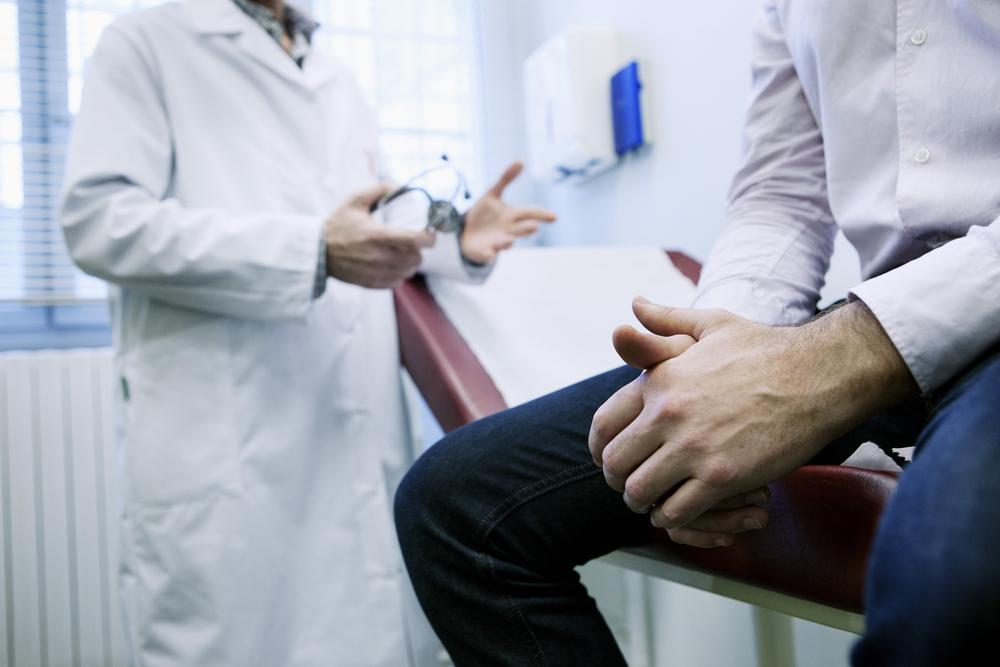Advanced Prostate Cancer – Symptoms, Treatment, And Prevention
One of the most common types of cancer in men is prostate cancer. Often, prostate cancer is diagnosed in men who are above the age of 65. Adenocarcinoma is the most common type of cancer to develop in the prostate. This cancer usually grows in the tissue of a gland, here, the prostate. Prostate cancer can be categorized into two types based on its progression speed—aggressive or fast-growing and non-aggressive or slow-growing.

What are the signs and symptoms of advanced prostate cancer?
The early stage of prostate is not aggressive and hence there might not be much symptoms experienced. Hence, most symptoms are experienced when the prostate cancer progresses to advanced stage.
- Some of the symptoms of advanced prostate cancer after progression are difficulty in urinating, erectile dysfunction, swelling in the pelvic area or legs, bloody urine or semen, painful ejaculation, fatigue, and unexplained weight loss.
- Some other symptoms one may also experience when the prostate cancer has progressed to the advanced stage depends on where the cancer is spreading and the size of the tumor.
- If the advanced prostate cancer has spread to the bones, then it can lead to pain in the bones and fractures; moreover, if the cancer has spread to the liver, it may cause abdominal swelling or jaundice. Cancer that are spread to the lungs can cause chest pain or shortness of breath; and cancer has spread to the brain it may lead to headaches, seizures, and dizziness.
What are the complications of prostate cancer?
There are some complications that may be caused because of prostate cancer and its treatment as well.
- Erectile dysfunction: Erectile dysfunction is a potential complication that may arise because of prostate cancer or its treatments like surgery, hormone treatments, or radiation. There are medicines and vacuum devices that can help in achieving erection. In some cases, the doctor may suggest a surgery for treating erectile dysfunction.
- Incontinence: Both prostate cancer and its treatments can cause urinary incontinence. The treatment for urinary incontinence will depend on the type of urinary incontinence, the severity, and the chances of the condition improving over time.
How is the progression of advanced prostate cancer diagnosed?
To determine the progression of advanced prostate cancer, the doctor will conduct certain tests to determine if the cancer has spread or not and in which parts of the body has it spread.
- The common tests that are conducted to diagnose the progression of advanced prostate cancer include X-rays, MRI scans, CT scans, bone scans, and PET scans.
- The doctor probably may not suggest all the tests mentioned above. The tests that are needed to be conducted are based on the symptoms the individual is experiencing and physical examination as well.
- If the doctor finds any tumor, the doctor may further suggest for a biopsy for additional testing.
How can one prevent advanced prostate cancer?
There are certain risk factors of advanced prostate cancer that cannot be controlled like age. However, there are some factors that one can control in order to decrease the risk of prostate cancer. These include the following:
- Diet: There are certain foods that reduce the risk of advanced prostate cancer like tomatoes, fish, soy, broccoli, olive oil, and kale. However, foods like milk and dairy products, red meat, grilled meat, and saturated fat tend to increase the risk of advanced prostate cancer.
- Exercise: Exercise has proven to be one of the ways to prevent advanced prostate cancer. This is because exercise helps in maintaining a healthy body weight and in losing weight. Obesity has been linked to be one of the risk factors of prostate cancer and hence, exercise can help one maintain a healthy weight.
Tags- advanced prostate cancer progression, prostate cancer symptoms, prostate cancer signs, late stage prostate cancer, symptoms prostate cancer